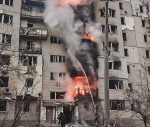You are here
‘Major problem’ becomes solution in Libya
Apr 09,2014 - Last updated at Apr 09,2014
The lifting of a militia blockade on two of Libya’s oil terminals has eased the crisis in that country and ended Tripoli’s threat to dispatch forces to Benghazi.
The terminals at Zueitina, south of Benghazi, and Hariga, to the east, have been handed over to the government while the ports of Ras Lanuf and Sidra, the largest of the terminals, are set to reopen in coming weeks.
Under a deal reached by Tripoli and the Benghazi-based rebels, protesters are prohibited from returning to the sites or hampering operations at the ports.
The government will pay the salaries of militiamen hired as port guards, drop charges against them and revoke the threat of military action.
While earlier agreements have broken down, there appears to be goodwill on both sides this time around.
The freeing up of the two ports could boost Libya’s oil exports about 200,000 barrels a day. Libya’s exports have fallen from 1.5 million to less than half-a-million barrels a day, at a cost to the country of $8 billion since August 2013.
Last month, US naval commandos took over a rogue oil tanker, the Morning Glory, carrying $36 million in Libyan crude being exported by Benghazi militiamen led by Ibrahim Jathran, and delivered the cargo to Tripoli, averting a military offensive by Tripoli against Benghazi.
The Morning Glory incident, which led to the ouster of prime minister Ali Zeidan, showed that the dysfunctional government based in Tripoli, the capital of the state and the region known as Tripolitania, cannot effectively counter bold challenges mounted by rebels operating from Benghazi in Cyrenaica, where two-thirds of Libya’s oil resources are located.
Unfortunately, revolutionary Libya has not made a successful transition to democracy and is ruled by militias which help provide some security, but, at the same time, undermine the security of the state and of its citizens.
According to opinion polls cited by The Washington Post, one-third of Libyans living in urban areas say they feel unsafe when they leave home to go to work, shop or school.
Twenty per cent feel unsafe in their homes and neighbourhoods. Forty per cent of women feel unsafe when they step out of their houses.
In rural regions, the rate of insecurity rises to 50 per cent.
Tripoli is beset by traditional rivalries. Zeidan — who has the support of the powerful militia from the mountainous Zintan region — was condemned for failing to prevent the ship from sailing although the Libyan navy is in dry-dock and he had at his disposal only a couple of tugboats.
He was replaced by Abdullah Al Thinni, a former defence minister, who is close to the Muslim Brotherhood and backed by the rival militia from the coastal city of Misrata. This militia is not pro-Brotherhood, but simply rejects any politician favoured by Zintan.
Fundamentalists in Tripoli can also count on the Revolutionaries Operations Room, the faction that kidnapped Zeidan briefly last October in retaliation for the US seizure of Abu Anas Al Libi, under indictment in the US for his alleged part in the 1998 US embassy bombings in Kenya and Tanzania.
This particular militia, which had been in charge of security in Tripoli, was dismissed by parliament after Zeidan’s abduction, but the Revolutionaries remain a potent force.
Militia power struggles have rendered the government powerless to deal with rebellious Benghazi, the base of the eastern rebels and the birthplace of the 2011 revolt against Muammar Qadhafi.
Benghazi secured a considerable degree of autonomy during the conflict and resented the return of the government to Tripoli once the civil war ended.
Marginalised and neglected during Qadhafi’s rule, Cyrenaica has also been demanding a large share of oil revenues to build infrastructure and foster the region’s economic development.
Cyrenaica is afflicted with ideological competition between fundamentalists and liberal leftists, as well as by battles between jihadist factions that fought Qadhafi.
Benghazi has become a violent city. Last month, a bombing at a military barracks slew 10 people leaving a graduation ceremony for officers.
Jihadist factions seeking to impose Muslim canon law, Sharia, carry out frequent bombings and assassinations.
The Morning Glory affair sprang from Cyrenaican discontents. Jathran, who was in charge of the oil ports, suspended operations until gauges could be installed on pumps at terminals so there can be metering of exports and a fair division of revenues.
He also demanded a referendum on federalism to decide Cyrenaica’s status. When he was ignored, he formed a provincial government and put oil up for sale.
With a population of only six million and Africa’s largest oil reserves, Libya could have been well placed to launch a successful transition to democratic rule and to develop its underdeveloped eastern and southern regions.
In addition to regional and militia power struggles, Libya has been held back by Qadhafi’s legacy.
During his 42-year reign, he monopolised power and created an eccentric system of governance that did not permit viable state institutions to emerge or the rule of law to take root.
His successors were also inexperienced in both governance and administration, and fearful that another authoritarian leader could emerge. Instead of creating an effective executive, they concentrated power in the legislature, the General National Congress (GNC). The judiciary was not empowered. Therefore, no checks and balances were installed.
To complicate the situation, the GNC has been disproportionately influenced by the Brotherhood’s Justice and Construction party, and its ultra-conservative salafist allies, while the prime minister and Cabinet have had a secular orientation.
While 80 per cent of respondents to the polls cited by The Washington Post regard democracy as the best form of government, only 34 per cent said in November last year that they trusted the GNC, a plunge from 67 per cent in May, and only 17 per cent expressed trust in political parties, down from 42 per cent in May.
As a consequence, Libyans have turned to personal and household firearms for protection and, in the absence of an effective police force and military, a majority backs trusted militias which represent different interests.
Militias also substitute for political parties and institutions and hamper their emergence.
Paradoxically, militias have become some sort of a solution while being the major problem the country now faces.












